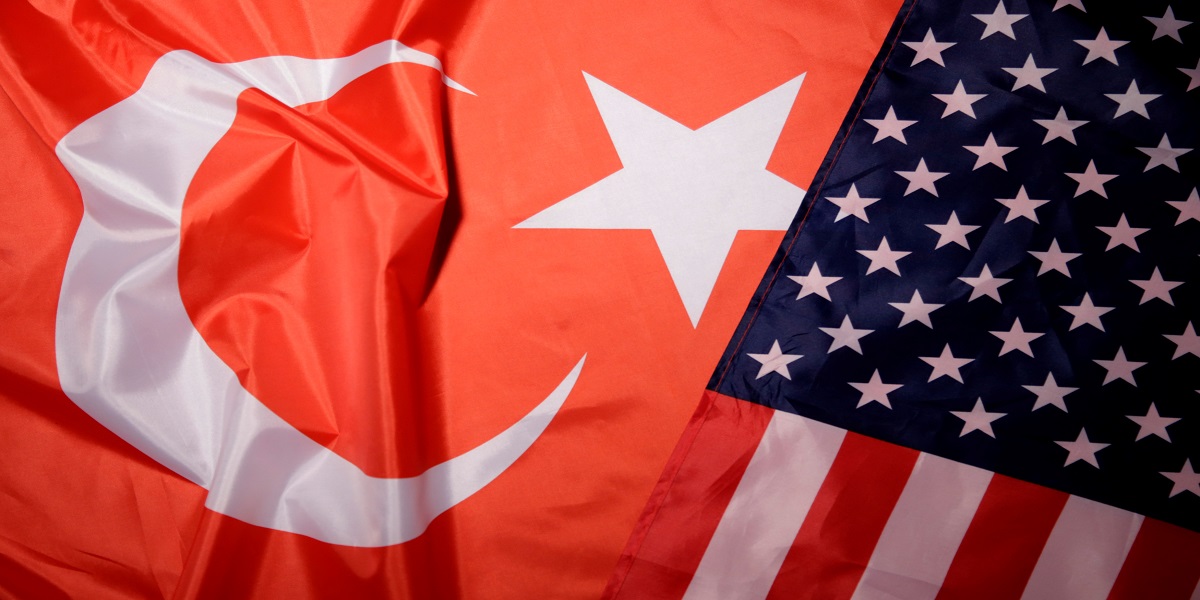According to the Wall Street Journal, US President Joe Biden’s administration has urged Congress to “approve” a proposed transfer of missiles and equipment upgrades to Turkey.
The agreement, estimated to be worth $300 million, is anticipated to strengthen defense connections between NATO nations.
The planned transaction, however, is not part of a $6 billion pact that Turkey has been seeking since last year to purchase 40 Lockheed Martin F-16 planes and 80 components to improve its existing fleet.
The informal notice mechanism used by the US government allows members of Congress to see the transaction and make input before it is completed.
The acquisition and deployment of Russian-made S-400 defensive missile systems by Turkey in 2017 led in the country’s withdrawal from the US F-35 fighter jet program in 2019 due to worries that the Russian radar system might spy on the aircraft.
This action prompted some US politicians to oppose a weapons transfer and equipment upgrade to Turkey. On Friday, seven advocacy organizations focused on US interests in the Caucasus, Mediterranean, and the Middle East urged Congress to “strictly scrutinize any proposed sale” to Turkey.
However, with Russia’s invasion of Ukraine upsetting regional balances, NATO cohesion and defense capability consolidation have become top objectives.
Turkey’s assistance to Ukraine in the form of Bayraktar TB2 drone shipments, as well as its position as a facilitator of peace negotiations between the two sides, have helped Ankara repair its tarnished image on Capitol Hill.
“Turkey is proving itself to be a key, helpful and strategic ally of the US,” Karen Donfried, assistant secretary of state for Europe and Eurasia affairs, told the Senate Foreign Relations Committee during a hearing on Thursday.
Similarly, Ozgur Unluhisarcikli, Ankara’s office director of the German Marshall Fund of the US, described Turkey as a key NATO ally and said that the US has a direct interest in the maintenance and modernization of its existing F-16 fleet.
“This would be a confidence-building measure that could lead to new F-16 fighters (acquired) by Turkey and eventually to the resolution of the S-400 crisis through a mutually agreeable model,” he told the media.
“It should not be forgotten that the Turkish air force constitutes part of NATO’s deterrence at its southern flank, which has become very important in light of the geopolitical risks caused by Russian expansionism,” said Unluhisarcikli.
Turkish President Recep Tayyip Erdogan also raised the issue of the F-16 sale with his US counterpart in a phone call in March.
Top Ankara officials stated that discussions on F-16s and upgrade kits were moving well.
Former US Senator Jeff Flake, the recently appointed US ambassador to Turkey, is also renowned for his support for the sale.
Last month, Secretary of State Antony Blinken proposed reducing bureaucratic impediments to overseas weapons sales to crucial US partners such as Turkey.
Furthermore, in a March 17 letter to Congressman Frank Pallone and more than 50 lawmakers opposing Ankara’s purchase of F-16s, the State Department argued that “there are compelling, long-term NATO alliance unity and capability interests, as well as US national security, economic, and commercial interests that are supported by appropriate US defense trade ties with Turkey.”
The letter highlighted Turkey’s contributions to NATO, and its support for “Ukraine’s territorial integrity and cooperative defense relations,” described as “an important deterrent to malign influence in the region.”
Sinan Ulgen, director of the Turkish think tank EDAM, said that the US and Turkish agreement in principle on the arms deal signals an improvement in the bilateral relationship, especially in defense industry areas.
“If this package goes through, it will create positive momentum and will be seen as a strong signal that there is now a willingness to improve the relationship. This environment will be shaped by the Ukrainian war and the role Turkey has played there,” he told the media.
Soner Cagaptay, director of the Turkish Research Program at the Washington Institute, described the proposed deal as a positive step because Turkey-US relations are focused mainly on defense, but added that “there is a need to build other bridges to tie the two countries together.”
“It looks like most members of the Congress are agnostic about the sale. The gradual shift in Congress may be linked to the war in Ukraine because there is a growing sense of realism against Russia. Until the Ukrainian war, Turkey was thought of as not a good ally. Turkey’s complete alignment militarily with NATO in this war, however indirectly it is, helped eliminate some of these perceptions,” he said.
But one development on Friday may yield unexpected results, with Erdogan saying that Turkey did not support the membership of Sweden and Finland in NATO.
The Turkish leader argued that both Scandinavian countries are “home to many terrorist organizations.”
According to Ulgen, Turkey has legitimate concerns about both countries, especially Sweden’s unwillingness to address grievances over fundraising by the outlawed Kurdistan Workers’ Party there.
“But Erdogan’s statement to threaten a veto on this accession will be viewed negatively in the US where there is political expediency to strengthen NATO and to back the alliance’s enlargement. This unexpected veto could potentially pose difficulty for Congressional approval in the US,” he said.
Cagaptay agrees: “The objections to these countries’ NATO membership may bring us back to the drawing board because whatever positive momentum was built regarding Turkey inside Washington, it will be quickly consumed now by the perception that Turkey is pro-Russia. This move, therefore, risks making Turkey look like the ‘Hungary inside the EU’ in terms of its membership in NATO,” he said.
Turkey’s position on Sweden and Finland’s NATO membership is being reviewed in Washington as well. Donfried made a press statement on Friday, saying that the US is working to “clarify” Turkey’s position and adding that it will be discussed at the NATO meeting in Berlin on Sunday.
For the latest International News Follow BOL News on Google News. Read more on Latest International News on oldsite.bolnews.com





















